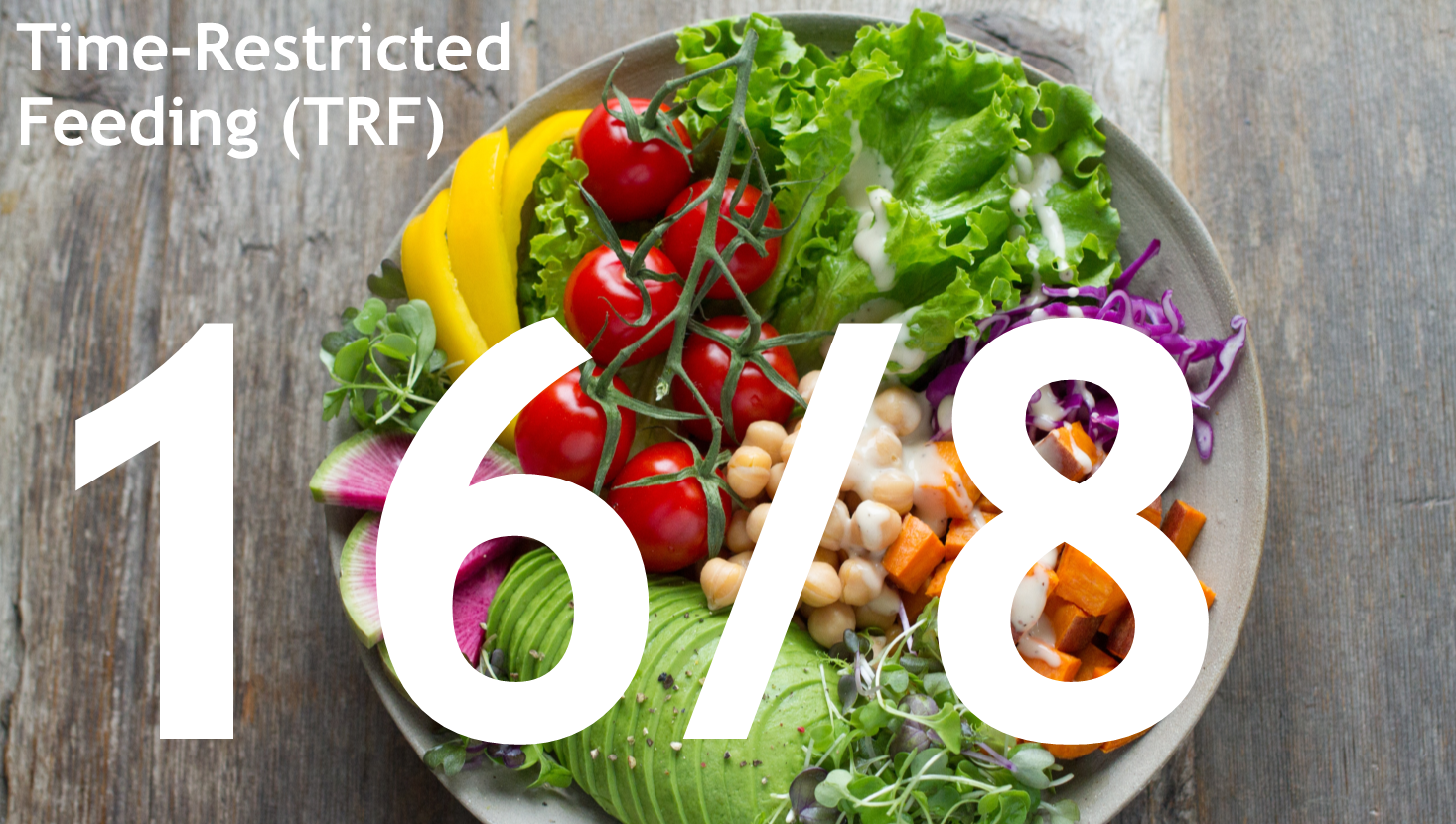
The majority of popular intermittent fasting (IF) protocols can be grouped into 1 of 3 categories: alternate-day fasting, whole-day fasting, and time-restricted feeding.
Time-Restricted Feeding (TRF) involves following the same eating routine each day. That means a certain number of hours are designated as the feeding window and the remaining hours as the fasting period.
An example of time-restricted feeding is if you choose to eat all your food (i.e. calories) for the day in an 8 -hour window from 8 a.m. to 4 p.m. Or instead you could choose a feeding window that goes from 12 p.m. to 8 p.m.
The remaining 16 hours each day are the fasting period. During the fasting period, you should not consume any calories. You are allowed to drink water, and black coffee in the morning, or green tea if that is preferred.
TRF is sometimes referred to as a 16/8 program. Restricting your feeding window to 8 -hours is more important than the 16 -hour fasting period, especially if you skip a day or two and want to get back on a TRF schedule. The fasting period should be at least 12 -hours from the last meal of the evening to the first meal of the following day to count it as a TRF day.
Time-Restricted Feeding (TRF) promotes an anti-inflammatory state in your body that can help relieve joint and muscle pains.
There are both mental and physiological benefits from TRF:
- The mental benefit of the 16/8 lifestyle is that you absolutely have to be mindful to not consume any calories during those hours. This is a time-period wherein many people eat 1,000 calories or more.
- The physical benefits of TRF are that you will promote an anti-inflammatory state in your body. This often helps relieve muscle aches and joint pains, as well as decrease fat mass, and maintain muscle mass.
TRF has been shown to improve your overall health and wellness. If you cannot do TRF every day, then make it your goal to restrict when you feed each day for at least four (4) or more days each week. A 16/8 TRF program done this way is sustainable, and part of a personalized eating plan you can stick to in the long run.
Sources:
- Effects of eight weeks of time-restricted feeding (16/8) on basal metabolism, maximal strength, body composition, inflammation, and cardiovascular risk factors in resistance-trained males.
- Effects of intermittent fasting on body composition and clinical health markers in humans.
- Early Time-Restricted Feeding Improves 24-Hour Glucose Levels and Affects Markers of the Circadian Clock, Aging, and Autophagy in Humans.
